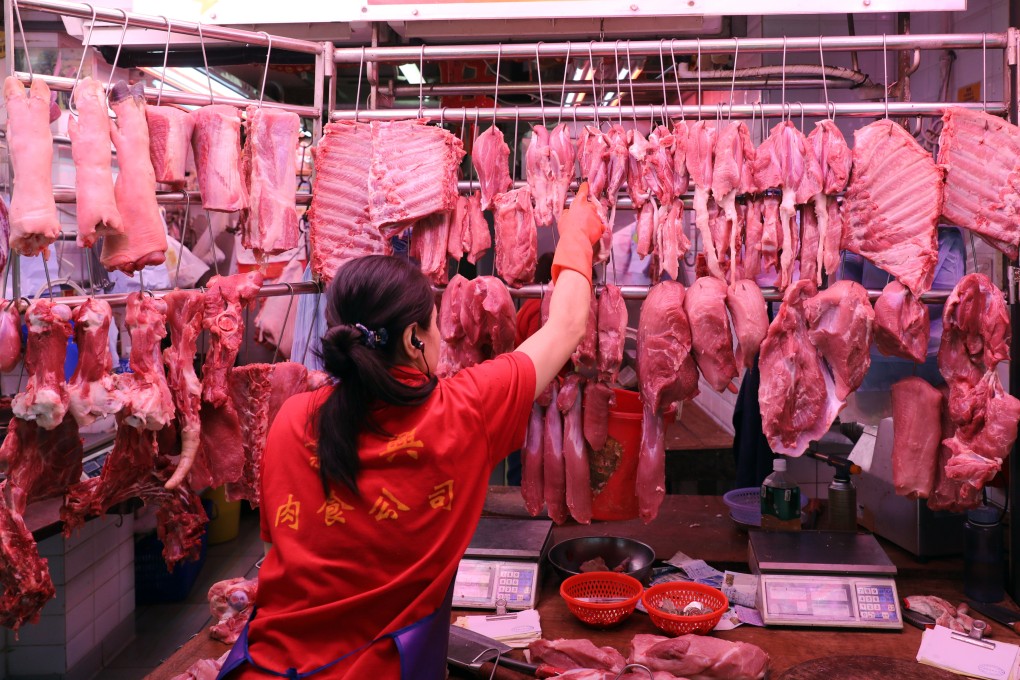Eating less meat can help reduce 75,000 premature deaths related to air pollution in China, study finds
- Growing appetite for meat since the 1980s has seen ammonia gas emissions from the agricultural sector increase more than 60 per cent, research shows
- Ammonia released into the air reacts with other pollutants to form the fine particulate PM2.5, which can travel into the lungs and bloodstream, cause respiratory and heart problems

Reducing the over-consumption of meat could help lower the concentration of a major air pollutant and avoid 75,000 premature deaths in China, a team led by Hong Kong researchers has found.
Professor Amos Tai Pui-kuen of Chinese University, who helmed the study, said ammonia gas emissions from the agricultural sector had increased more than 60 per cent since the 1980s, when Chinese people started to eat larger amounts of meat.
“China’s population has increased sharply in the past 30 years, and the amount of meat consumed by each person has also grown, from around 30 grams per day to more than 150 grames a day,” Tai said. “Hongkongers eat even more, about 200 grams per person each day.”

People in large cities, including Hong Kong, were also disproportionately contributing to the problem, making up the bulk of China’s meat eaters, he added.
Tai led the joint study between Chinese University and the University of Exeter in Britain, which was published earlier this month in the journal Nature Food.
The study examined how reducing meat consumption could improve air quality, a step forward from previous research that mainly targeted fossil fuel burning to tackle the rampant air pollution problem in China.
The growing appetite for meat has seen production in China soar 433 per cent between 1980 and 2010 – from 15 to 80 megatons – which increases the amount of animal waste and fertiliser needed to grow the corns and beans used as livestock feed, both of which emit ammonia.
According to Tai, that ammonia released into the air reacts with other pollutants to form the fine particulate PM2.5, which are small enough to travel into the lungs and even the bloodstream.